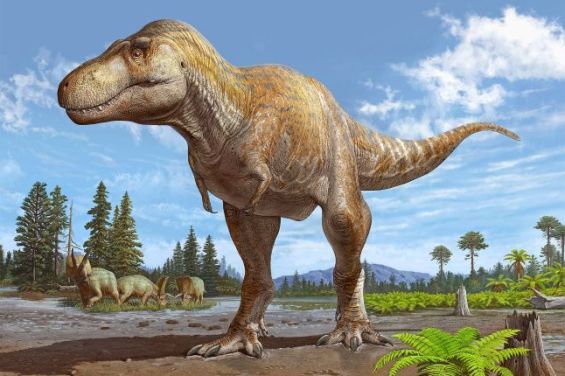The image of dinosaurs slowly fading away before their extinction event 66 million years ago may need to be revised. New fossil discoveries in North Africa, particularly in Morocco, paint a surprisingly different picture : one of a thriving and diverse dinosaur fauna just before their abrupt disappearance.
These findings challenge the long-held narrative of a gradual decline and suggest that instead, dinosaurs were caught off guard by a sudden catastrophe, possibly an asteroid impact.
Nicholas R. Longrich, a paleontologist and Senior Lecturer at the University of Bath, delves into the implications of these Moroccan fossils in his recent article. «The phosphate deposits of Morocco are the remains of an ancient seabed, dating to the final million years of the dinosaur era», he explains.
«They're full of fish bones and scales, shark teeth and marine reptiles. Vast numbers of marine reptiles – mosasaurs, plesiosaurs, sea turtles», he emphasizes, highlighting the richness of the fossil record.
Understanding of dinosaur extinction
This abundance of fossils offers a detailed glimpse into the final chapter of dinosaur evolution in Africa, «bone by bone», according to Longrich. The diverse fauna includes large titanosaurs, long-necked plant-eaters rivalling elephants in size, and smaller horse-sized duck-billed dinosaurs filling the herbivore niche.
Predatory dinosaurs were also well-represented, with the fearsome ten-meter-long Chenanisaurus barbaricus and abelisaurs, close cousins of the Tyrannosaurus Rex but with distinctive short arms. Recent discoveries have even added two new abelisaurs to the list, further showcasing the diversity of predatory dinosaurs in the region.
«The African dinosaur fauna, especially that that once lived in Morocco, hints that at low latitudes, dinosaurs were thriving, even diversifying», Longrich emphasizes. «If so, that means dinosaurs were cut down in their prime, burning out rather than fading away».
Africa's diverse predatory dinosaurs, particularly those found in Morocco, offer compelling evidence that these creatures were not slowly declining towards extinction.
Instead, they flourished for over 100 million years, evolving into a remarkable array of species – predators, herbivores, aquatic forms, and even flying creatures like the birds. However, in a single, catastrophic event, everything was wiped out, shrouded in months of darkness caused by dust and soot from the impact.





 chargement...
chargement...













